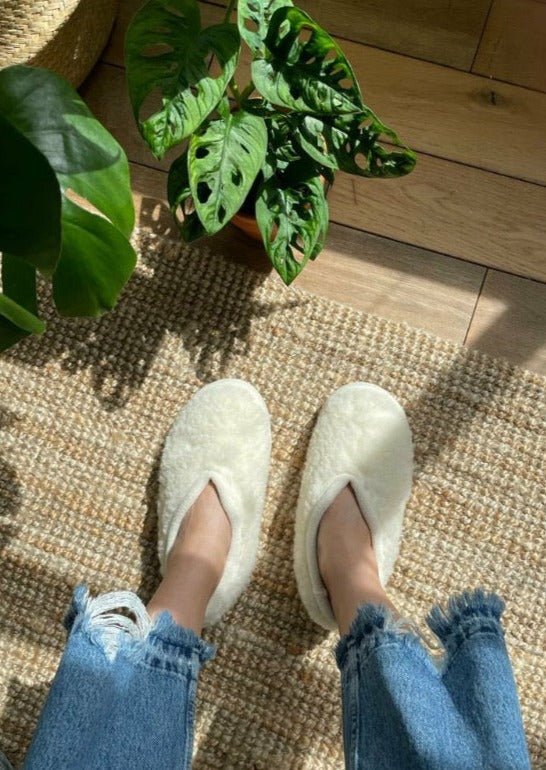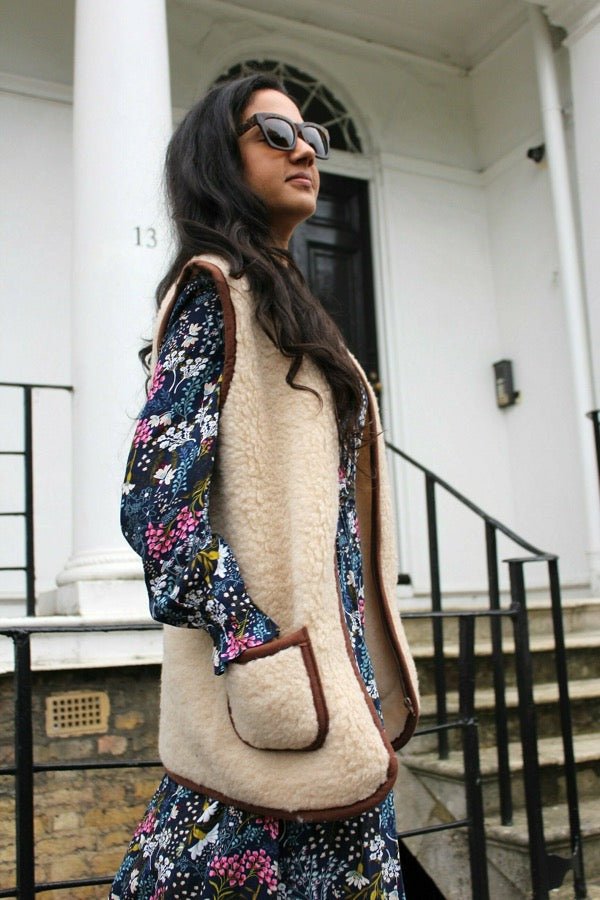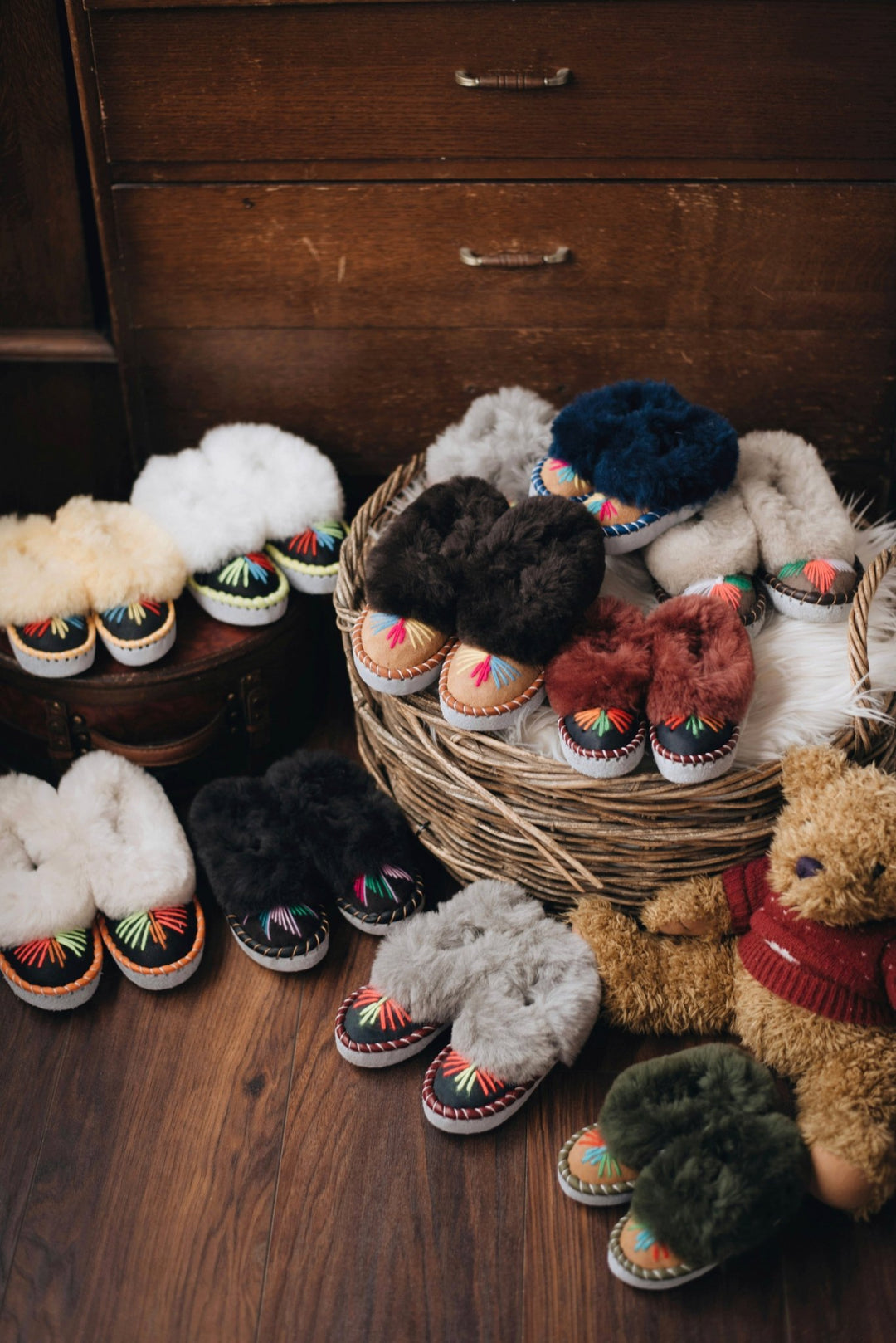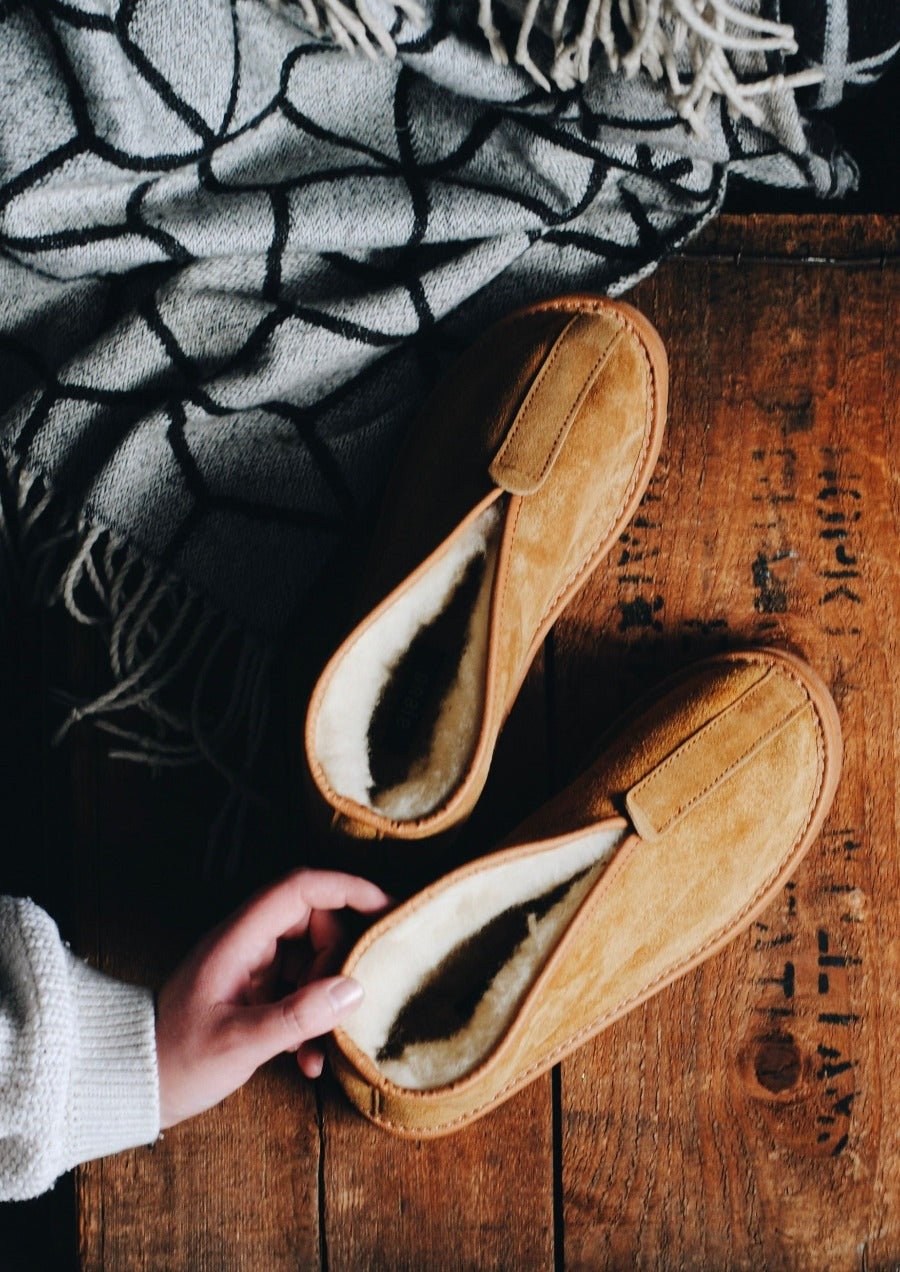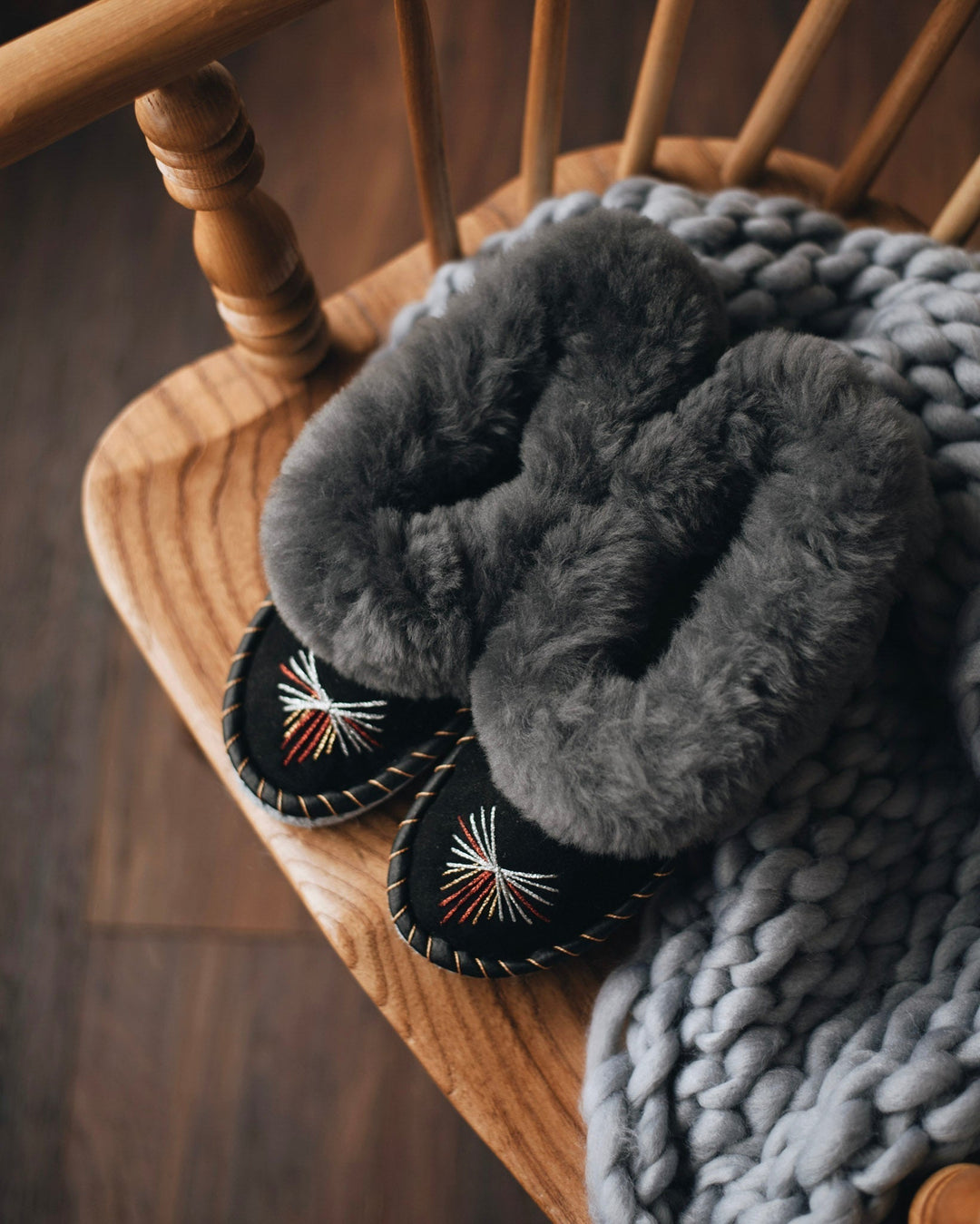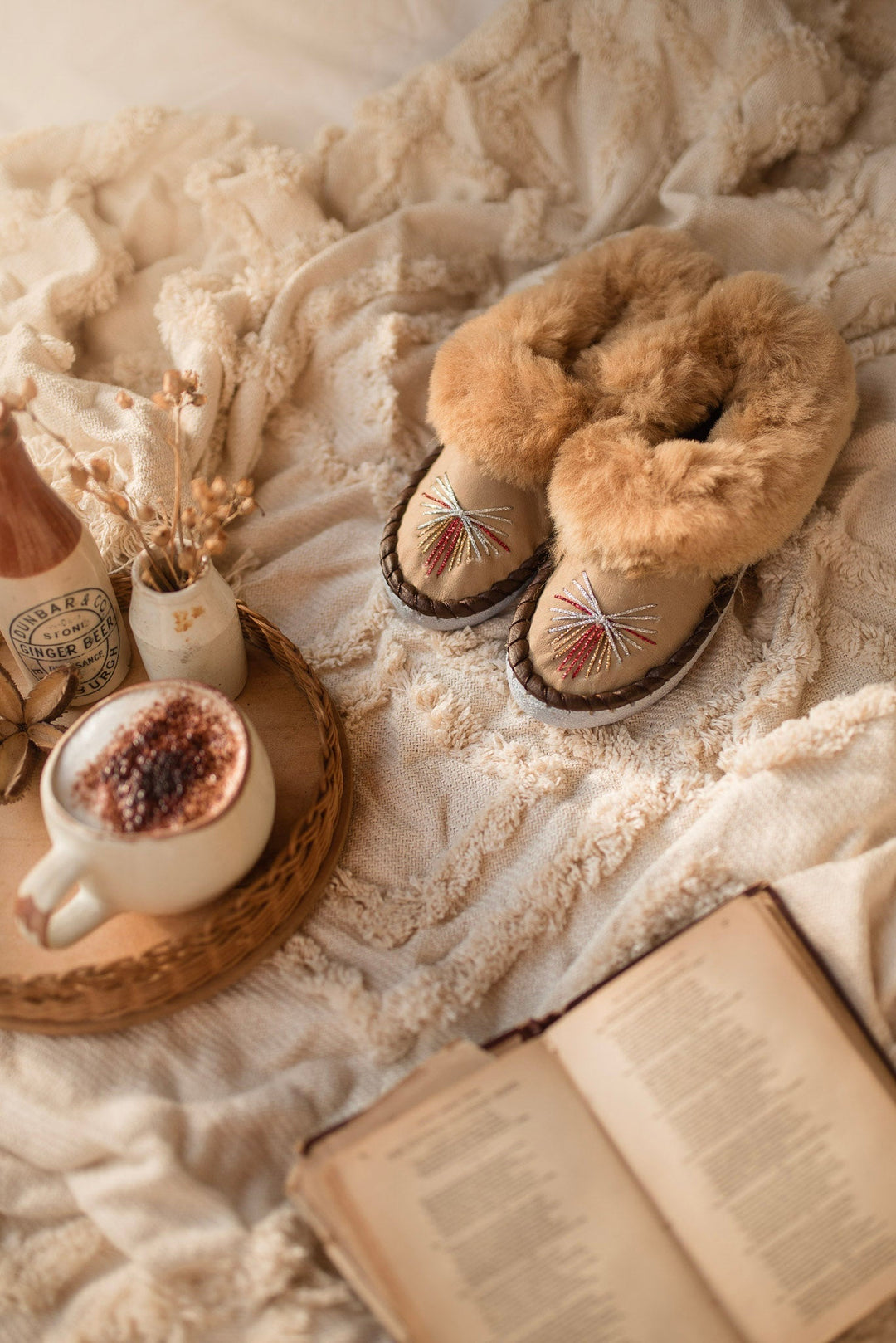Slippers might just be the most underrated item in the British home. We shuffle into them on chilly mornings, slip them on after a long day, and rely on them as the ultimate symbol of comfort. Yet, for something so universally loved, slippers have picked up a few myths along the way, many of which deserve to be set straight.
Take the idea that slippers are only for winter. It is true they come into their own when the temperatures plummet, but good slippers are an all-season companion. Real sheepskin, for instance, is naturally temperature-regulating, meaning your feet stay warm in January but pleasantly cool come July. They are less a seasonal indulgence and more a year-round essential.
Another common misconception is that slippers make your feet sweaty. That may well be the case with synthetic fabrics, which trap heat and moisture, but natural sheepskin works very differently. Breathable and moisture-wicking, it allows your skin to breathe, keeping your feet fresh rather than clammy.
There is also the notion that slippers do not need proper support. After all, how much work are your feet really doing at home? The answer is quite a lot. From standing at the hob to climbing the stairs, your feet carry you through it all. Supportive slippers help with posture, alignment and fatigue, so they are far more than a cosy extra.
People often assume sheepskin is difficult to care for, but in reality it is surprisingly low-maintenance. A quick brush or gentle spot clean is usually all it needs, and because it is a natural material it is far more resistant to odours than man-made alternatives. Similarly, concerns that slippers will simply stretch out and lose shape are misplaced. While quality slippers will soften and mould to your feet over time, that is part of their charm. They are designed to adapt without ever becoming shapeless.
And then there is the final myth, that you do not really need slippers if you have socks. Socks may be fine for warmth, but they offer no real support, no protection from cold tiles or wooden floors, and certainly no longevity. Who has not ruined a pair by padding about the kitchen in them? Slippers, in contrast, are designed for the job.
In truth, slippers are not just a luxury or a seasonal afterthought. When well made, they are an everyday ritual of comfort and care. So the next time you step into a pair, take a moment to appreciate them. These small, unassuming companions are doing far more for you than you might think.
When you think about it, slippers are more than footwear. They are part of the rhythm of home life. They mark the transition from the outside world to your own sanctuary, the moment you let the day slip away. Whether it is sliding them on after a commute, padding to the kitchen for tea, or curling up on the sofa with a book, slippers are a small ritual of comfort that frames the way we live.
Their role in wellbeing should not be underestimated either. The simple act of keeping your feet properly supported at home can make a surprising difference to your posture and energy levels. Many people invest in supportive shoes for work or exercise, but forget that most of our time is spent indoors. Slippers that cushion and stabilise the feet help reduce strain on joints, protect against cold surfaces, and encourage better alignment. These are small benefits that gradually build up into lasting comfort.
There is also the question of longevity and sustainability. In a world where so many products are made to be replaced quickly, quality slippers stand out. A pair crafted from natural materials such as sheepskin or wool not only lasts longer but also resists odour and wear better than synthetic versions. By choosing well, you avoid the cycle of cheap pairs that wear thin within months. A good pair of slippers becomes like a trusted old friend, improving with age rather than diminishing.
And let us not forget their place as gifts. Few presents carry such a universal appeal. A thoughtful pair of slippers says, “I want you to be comfortable, I want you to feel cared for.” They make sense across generations, from children who need something warm underfoot to grandparents who appreciate support and softness. Wrapped up for Christmas, given as a birthday treat, or simply offered as a kind gesture, slippers have a way of bringing instant delight.
So the next time you slip your feet into a pair, pause for a moment. They are not just a buffer between you and the floor. They are an everyday reminder of warmth, ease and a life well lived. In a world that often prizes speed and utility, slippers stand quietly for comfort, durability and care. That is not a myth. That is their true magic.

